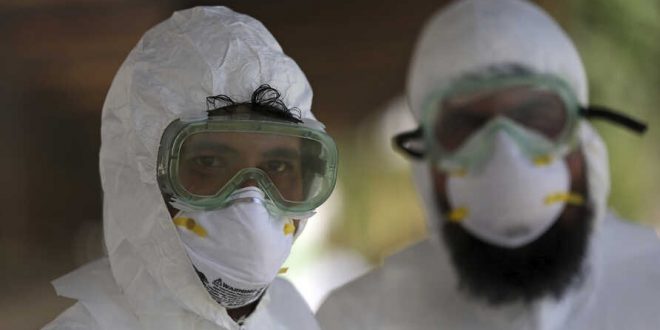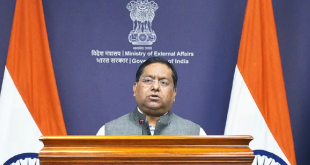By Maqsood Rezayee
In developing and developed countries, cities are facing rapid urbanization. Rapid urbanization is accentuating urban challenges, mostly leading to urban sprawl, uncontrolled and unmanaged development of cities, and development of informal settlement. Afghanistan is not exempt, where the rapid urbanization impacted large cities of Afghanistan with the manifestation of informal settlement.
Kabul, which is the capital of Afghanistan, is affected more than other cities by the migration and rapid urbanization and is home to 52.3% of urban population of Afghanistan. On the other hand, the limited capacity of the urban authority to provide plots for the residents and shortage of budget for the urban sector has led to the growth of informal settlements in Kabul. Therefore, 80% of the population of Kabul now live in informal areas. Furthermore, population growth and rapid urbanization in Kabul have been outpacing the Urban Authority’s capacity to provide infrastructure, basic services, and public amenities in the informal settlements. The people who are living in informal areas suffer from urban poverty, including lack of adequate infrastructure, drainage systems, solid waste management lack of access to public services, traffic congestion, and natural disaster. Therefore, the problems of the informal settlement are considerable challenges to the informal residents and government. For government in term of governance, it is hard and difficult for urban authorities to make the progress in the improvement of informal settlement. For informal resident’s problems posed by informal settlements are referring to lack of drainage system and sewage system. Lack of solid waste management, unpaved narrow street, lack of open spaces, recreation, and greenery. Lack of water supply, pollution of underground water. Absence of planned areas and proximity of the housing plots to each other which are challenges regarding access to the streets and main roads. As well as the basic services and infrastructure such as proper electricity and public services such as education facilities, healthcare facilities, recreation areas, and public space did not provide properly in the informal settlements in Kabul.
However, the OVID-19 originated in Wuhan, China, and has spread around the world, including Afghanistan. But, the impact of COVID-19 has, so far, been geographically and socially diverse. Cities with a high concentration of urban poor and deep inequalities are potentially more vulnerable than those that are better resourced, less crowded, and more inclusive. Hence, Afghanistan where cities have been recognized with high concentration of urban poor and inequalities is not exempt. The first confirmed case of COVID-19 has been reported on 24 February 2020 by Ministry of Public Health of Afghanistan from Western province of Herat. The number confirmed cases increased day by day, on 4 May 2020 18054 cumulative confirmed cases of COVID-19 have been reported by the Ministry of Public Health across Afghanistan. However, 7133 of those cumulative confirmed cases have been reported in Kabul the capital. Therefore, like other big cities around the world, Kabul is on the front lines of the COVID-19 crisis.
In efforts to curb the pandemic, initially the travel restriction and avoiding social gathering have been confirmed by the Afghan government cabinet to limit the spread of COVId-19. This restriction included banning the Nowruz celebration, suspending the schooling, and preventing of other spring gatherings and cultural celebrations. However, later on, on 27 March 2020, the Afghan government cabinet approved the imposition of compulsory quarantine in big cities such as Kabul, Herat, and Mazar-e-Sharif, and the initial restriction was tightened, then the residents have been forced to stay home. However, the household with proper basic hygiene facilities is figured as place of protection during the quarantine. Moreover, public health officials advise people to stay home and reduce contact with other people. However, for residents of Kabul, those who live in crowded and informal settlement and lack the proper shelter and housing, such quarantines, staying indoors and self-isolating are very high challenges. Besides, the residents of informal settlement in Kabul suffer the absence of waste management, shortage of basic services, and social facilities. Then, there is a higher risk of fast contagion for any infectious disease in such environments. Beside without access to basic services and infrastructure, provision of drinking water, water for handwashing, reducing physical contact, and improvement of hygiene posed other challenges for both government and informal residents to curb the COVID-19 pandemic.
Therefore, the COVID-19 pandemic will hit the people live in informal settlement in Kabul, where hand washing and social distancing due to, minimal health facilities shortage of waste management, lack of basic services, and poor housing, are often impossible. Moreover, the economic consequences of COVID-19 for those in informal settlements will be long-lasting. As cities suspend daily activities and restricted movement, then, day laborers and those in informal employment will lose their income. This can result in people being forced to leave their homes due to their inability to pay the rent. Thus, preventing and managing of COVID-19 outbreaks is most challenging in informal settlement in Kabul, where people depend on informal health facilities, and use overcrowded or poorly maintained public transport systems to commute long distances between home and work. As a result, the outbreak of COVID-19 has had a profound impact on informal residents and will be just one more tragedy for those who live informal settlement in Kabul.
It has been made the effort to reduce homeless and improve informal settlement in Kabul, but emerging of COVID-19 is leading to be doubled this effort urgently with taking into account not only the risk to homeless people but also to resident with inadequate and unhealthy home. Therefore, now is the time to be added informal settlement improvements in post-pandemic government agenda’s.
Writer is Maqsood Rezayee graduated from Kabul Polytechnic University in 2014 with Bachelor of Science in Architecture Department, Faculty of Construction. Following that, in 2015 he accepted aa s full-time lecturer at the Department of Architecture, Faculty of Engineering, Nangarhar University, Afghanistan. After 2 years of teaching in 2017, he got an offer letter from Universiti Teknologi Malaysia to study Master of Science (Urban and Regional Planning) in Faculty of Built Environment and Surveying, from which he graduated in 2019. After graduation from Universiti Teknologi Malaysia, he is doing a full-time lecturer position at the Department of Architecture, Faculty of Engineering at Nangarhar University-Afghanistan.
 Afghanistan Times Latest News and Analysis from Afghanistan and the Region
Afghanistan Times Latest News and Analysis from Afghanistan and the Region




